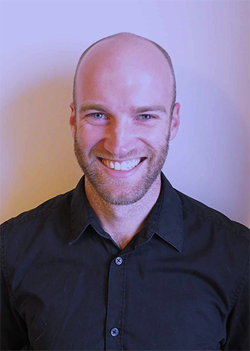Lessons from outliers: a foray into findings and insights from extreme qEEGs
Brendan Parsons, MSc, PhD, BCN
1-day workshop
Date: Tuesday, March 25, 2025
Language: English
Workshop Title
Lessons From Outliers: A foray into findings and insights from extreme qEEGs
Workshop Description
Quantitative electroencephalography (qEEG) has revolutionized our understanding of brain function, offering detailed insights into the neural dynamics of various populations. This workshop will delve into the unique and informative realm of extreme qEEG patterns, exploring how these outliers can provide critical insights into both typical and atypical brain function. By examining cases of extreme deviations in qEEG readings, we aim to uncover the underlying neurophysiological mechanisms and their implications for neurofeedback and broader neuropsychological practice.
Participants will gain an understanding of the methodologies used to identify and analyze extreme qEEG patterns, including advanced signal processing and statistical techniques. We will present case studies illustrating how these outliers have been interpreted and utilized in clinical settings, highlighting their significance in diagnosing and tailoring interventions for various neuropsychological conditions.
The workshop will also address the challenges and limitations of working with extreme qEEGs, emphasizing the importance of robust data interpretation and the potential for these findings to inform personalized neurofeedback protocols. By the end of the session, attendees will have a deeper appreciation for the value of extreme qEEG data, equipped with practical strategies for integrating these insights into their own practice.
Join us for an engaging exploration of the lessons learned from outliers in qEEG, where we transform anomalies into opportunities for advancing the field of neurofeedback and neuropsychology.
Learning Objectives
1) Understand Methodologies: Gain proficiency in the advanced methodologies used to identify and analyze extreme qEEG patterns, including inspection of the “raw” signal processing and statistical techniques.
2) Interpretation Skills: Develop skills to interpret extreme qEEG data accurately and understand their implications for neuropsychological conditions while recognizing the challenges and limitations associated with extreme qEEG data and learn strategies to overcome these obstacles.
3) Clinical Application: Learn how to apply findings from extreme qEEG cases to clinical practice, enhancing diagnostic and intervention strategies.
4) Personalized Neurofeedback: Explore the potential of extreme qEEG insights to inform and optimize personalized neurofeedback protocols.
About Brendan Parsons
Brendan Parsons, M.Sc., Ph.D., BCN, has a doctorate in psychology – neuropsychology and cognitive science from the University of Montreal. Certified “BCN” since 2009, he has a decade and a half’s worth of experience in the fields of biofeedback and neurofeedback. Extremely lucky to have been a part of the BFE early in his career, he had the lucky opportunity to be trained by world-recognized experts such as Dr. Robert Thatcher, Drs Lynda and Michael Thompson, Dr. Paul Swingle, Dr. Johanne Levesque and Dr. Mario Beauregard.
His experience in biofeedback and neurofeedback applications extend to athletic domains (with the Vancouver Canucks of the National Hockey League, Olympic and Paralympic athletes from Canada, the United States and Sweden), to that of business and leadership performance (for example with the International Consortium of Master of Business Administration; CIMBA).
His preferred practice and specialty remain clinical applications. He works with children, adolescents and adults; AD/HD (attention deficit/hyperactivity disorder), ASD (autism spectrum disorder), learning disabilities, emotional and behavioural regulation problems (anxiety, post-traumatic stress disorder – PTSD, depression, obsessive-compulsive disorder – OCD), chronic pain, sleep disorders, tinnitus…
For years, Brendan worked at Neurodezign, a leading clinical practice in Quebec, Canada. There, he became an expert in neurofeedback and in qEEG interpretation, helping design and implement the methods utilized in this practice and in a number peer-reviewed research studies demonstrating the efficacy of neurofeedback and other related neuroscientific techniques.
He is a proud member of the BCIA since 2009. He is also proud to have contributed to the development of the Biofeedback Foundation of Europe in his early days in the field. Since 2010, he has taught various levels and methods of biofeedback and neurofeedback to professionals around the world.
Concerned with the growth of the field and the need for robust empirical support for applied techniques, he has contributed to several clinical research studies and continues to be involved in ongoing works in collaboration with a number of Canadian universities.
Co-founder of the first company to offer a French-language BCIA-certified neurofeedback course in France, he is currently invested in the development of NeuroLogic, his latest co-founded project. His mission remains helping professionals in various fields integrate evidence-based neurofeedback techniques into their practice.

